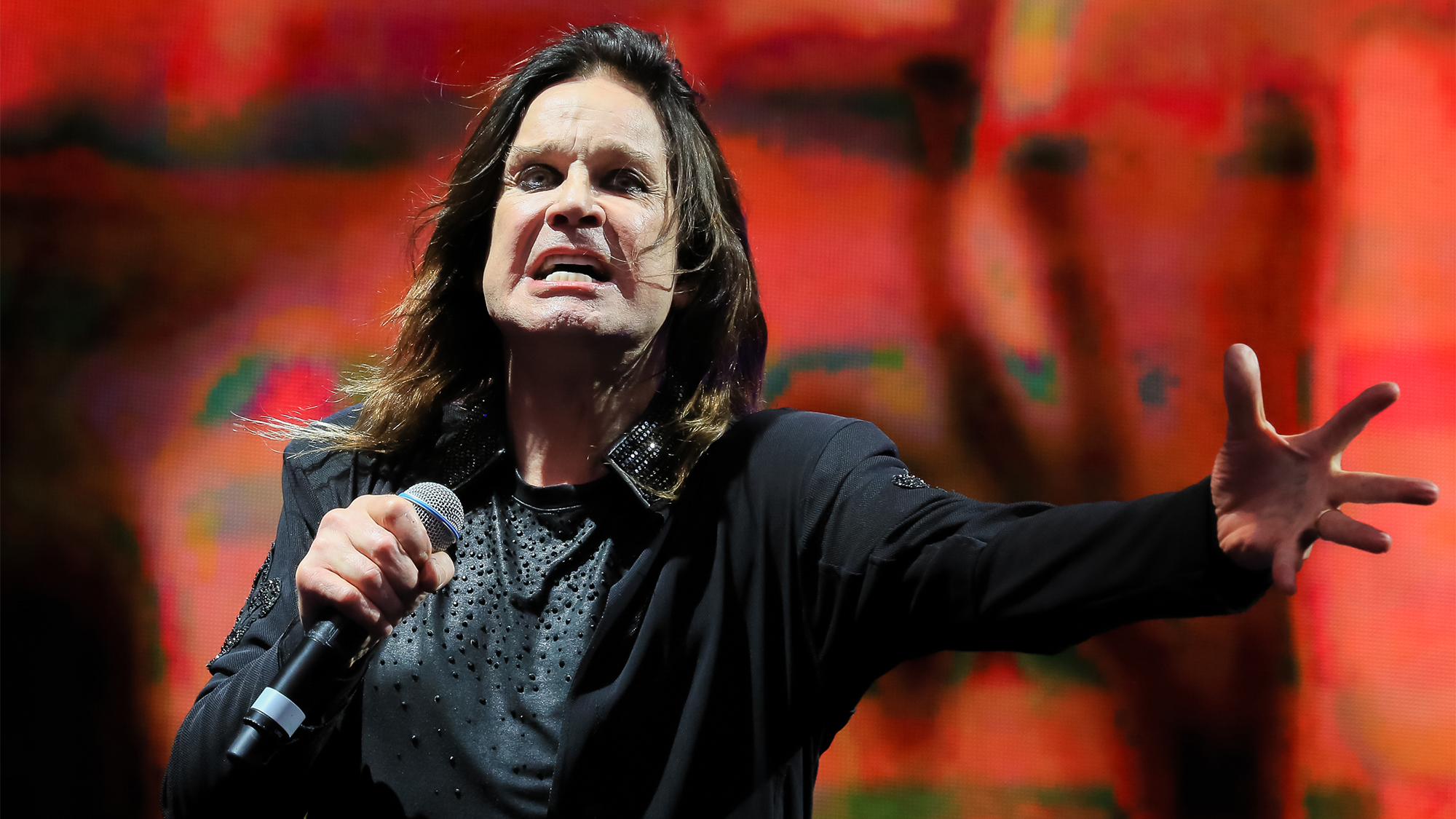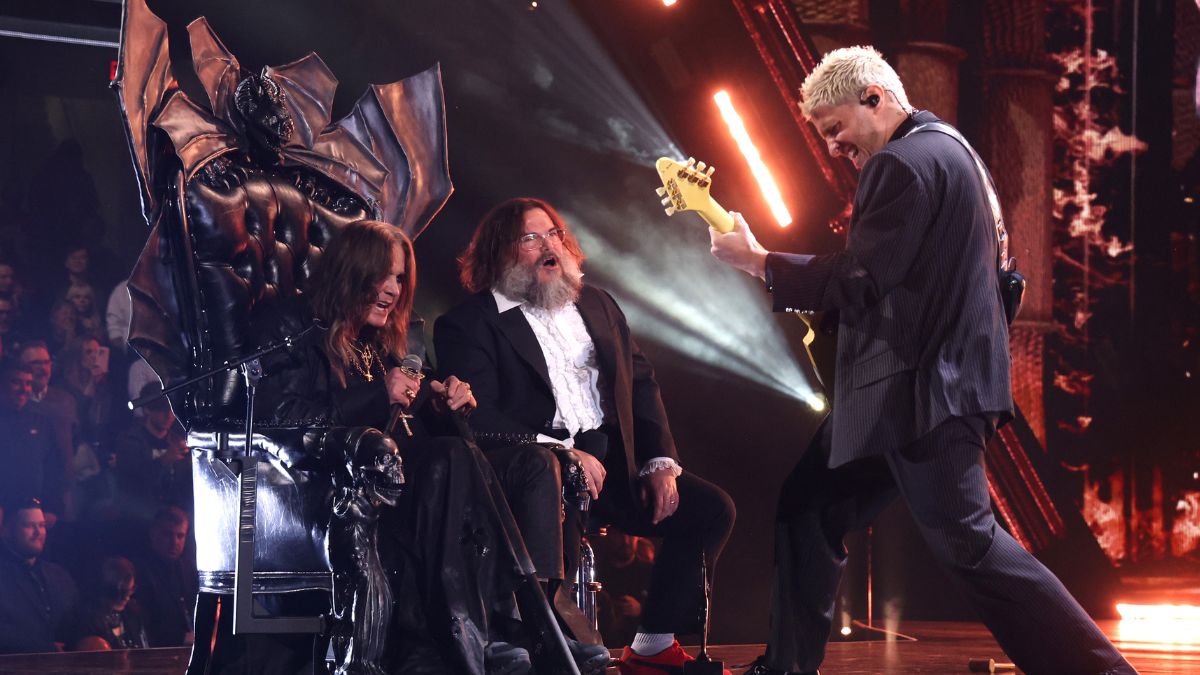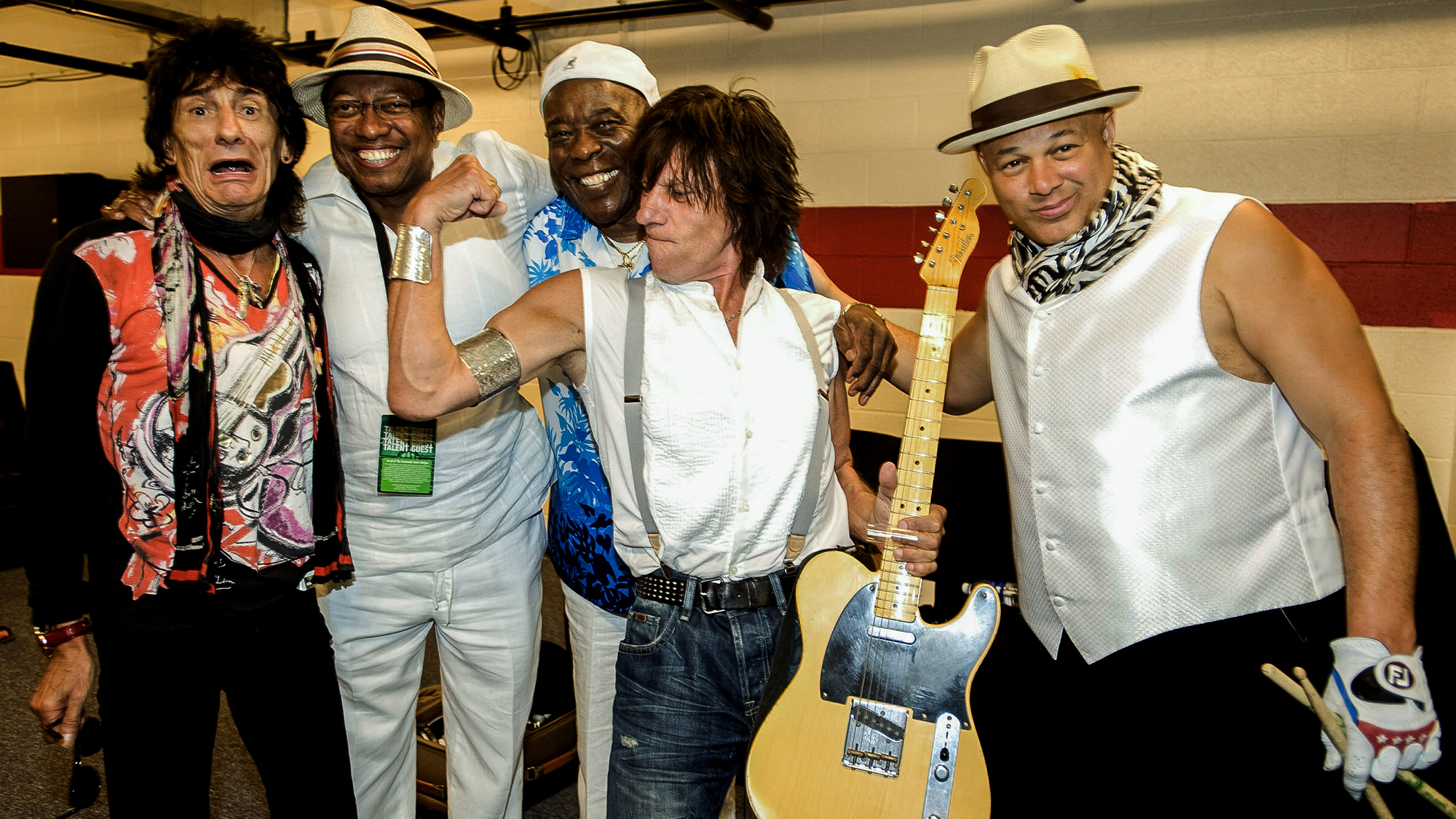“It's the most important thing. It makes the song heavy.” Ozzy Osbourne told Andrew Watt what every great rock song needs
Ozzy was the first artist who trusted the guitarist ad producer to make a rock album, and he learned a valuable lesson along the way

All the latest guitar news, interviews, lessons, reviews, deals and more, direct to your inbox!
You are now subscribed
Your newsletter sign-up was successful
Andrew Watt, who produced, co-wrote and played guitar on Ozzy Osbourne’s final two solo records, has reflected on the “genius” of the Prince of Darkness and the key lesson he learned from working together.
Born in Great Neck, New York, Watt has made a name for himself in recent years by handling guitar work and production for albums by Iggy Pop, Miley Cyrus and Lady Gaga, and producing legendary acts, including the Rolling Stones and Pearl Jam.
As a guitarist, Watt was an original member of the Glenn Hughes–fronted supergroup California Breed, played alongside an all-star cast at Ozzy's second Hall of Fame induction, and has shared stages with Warren Haynes, Robby Krieger and Paul McCartney.
But back in 2020, he'd never produced anything on the heavier end of the spectrum. In fact, most of his production credits up to that point had come as singles.
“Ozzy and Sharon were the first ones to believe that I could make them a great rock album,” Watt told Guitar World earlier this year. He went on to co-write 10 tracks with Ozzy and enlisted a strong cast of guest collaborators, including Slash, Tom Morello and Post Malone.
But the biggest gift of all was the education he got from working with a legend like Ozzy.
“You have to understand. This man was making 'Paranoid' when he was 21,” Watt tells Rolling Stone. “He had a 55-year career where everything was grandiose and at the highest level. He’s one of the smartest people I’ve ever met, and a history buff, and a genius, a literal genius.”
All the latest guitar news, interviews, lessons, reviews, deals and more, direct to your inbox!

There were times in the studio, he recalls, when Ozzy was busy drawing, seemingly not paying attention. But he was always locked in.
“His ears were reactive,” he says. “You could think he wasn’t listening, and he heard every single thing. He’d just give me this one line that cuts so deep, in a positive way.”
The moment he remembers most clearly was when he thought he knew the answer to one of Ozzy’s questions. He was quickly corrected.
“He said to me, ‘Listen to Led Zeppelin and tell me what the loudest thing is’. And me, having my confidence, I’d be like, ‘It’s the drums. John Bonham.’
“He said, ‘Nope, not the drums. It’s the bass.’
“He pointed out that the bass is the most important thing in a rock song,” Watt continues. “You have to make sure the bass is there and pumping and cutting through and providing that sense of rhythm, because it’s the bridge between the drums and the guitars.
"It makes the song heavy because the guitars can poke through if you have them mixed in the right way. The bass is a hard thing to really get cutting, but to also represent the bottom end. He was very bass-focused mix-wise, and making sure the bass came through.”
He points to one of Ordinary Man’s singles, “Under the Graveyard,” for evidence, emphasizing its extensive low-end, adding, “he was involved in every detail of every single mix-down too. That’s how much he cared.”
Watt says he and Ozzy spoke daily before his passing, which made his death all the more surprising. He didn’t see it coming.
“We were really big for each other, both as collaborators and as friends,” he says. “And, fuck, man, more than anything, I miss the laughter. He’s the funniest person ever of all time.”
There's also the small fact that, in working on those albums together, he etched his name onto a long list of guitar players to have featured on Ozzy records.
“He let me play guitar on his albums,” Watt recollects, “and that’s just unbelievable.”
Joe Bonamassa did likewise in 2005, jokingly asking, “Did every rock guitar player in Los Angeles disappear spontaneously at the same time?” when he got the call to play on his album, Under Cover.
The bluesman has likened what Ozzy did in promoting hotshot electric guitar players, with smaller, lesser-known shredders often given the nod over more established musicians, to what John Mayall did in the late '60s.
A freelance writer with a penchant for music that gets weird, Phil is a regular contributor to Prog, Guitar World, and Total Guitar magazines and is especially keen on shining a light on unknown artists. Outside of the journalism realm, you can find him writing angular riffs in progressive metal band, Prognosis, in which he slings an 8-string Strandberg Boden Original, churning that low string through a variety of tunings. He's also a published author and is currently penning his debut novel which chucks fantasy, mythology and humanity into a great big melting pot.



